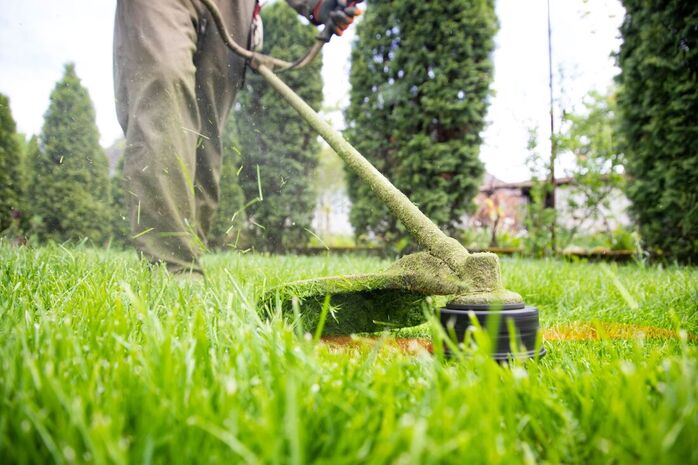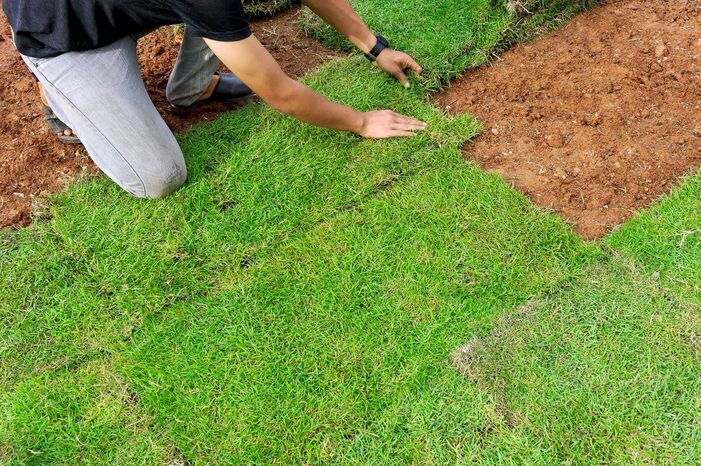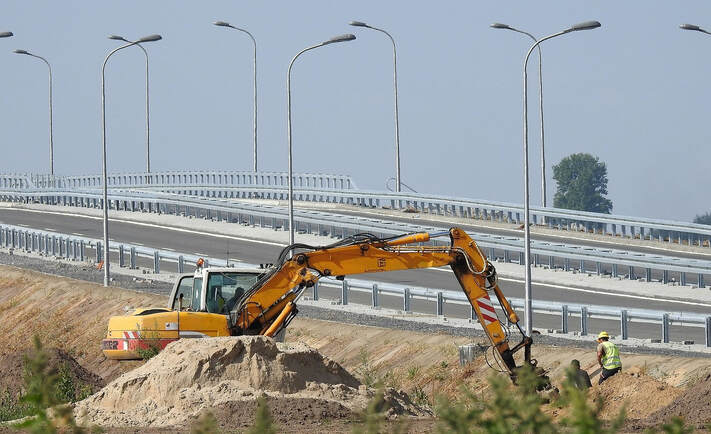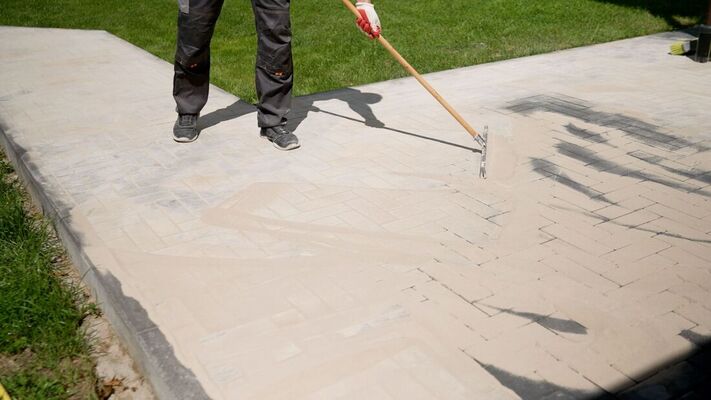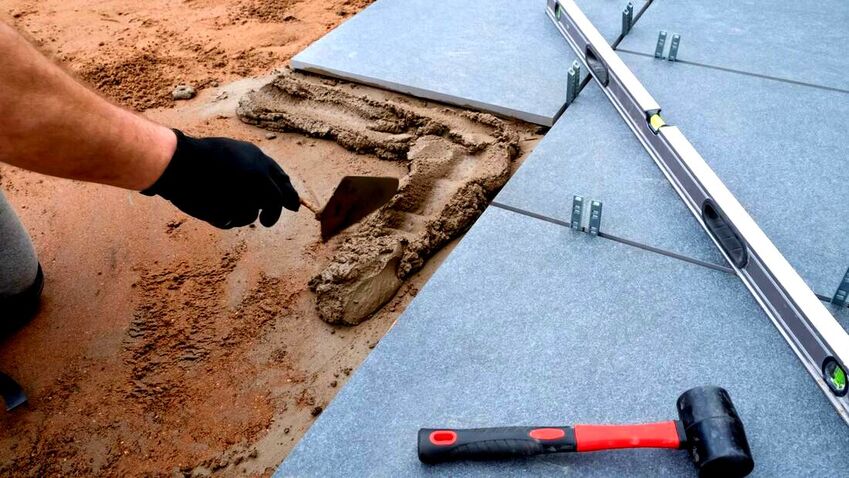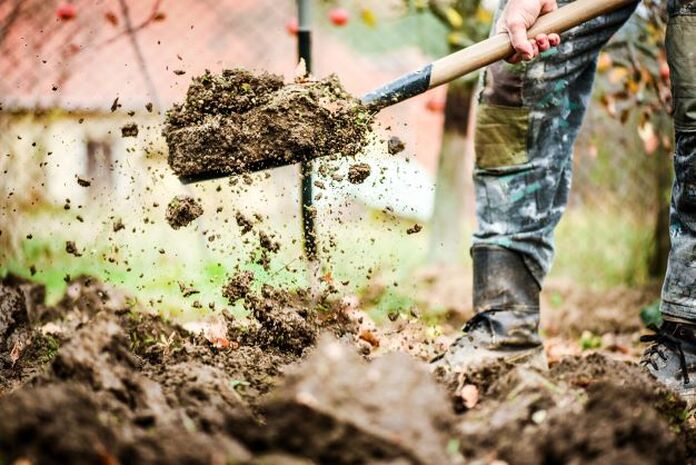|
This article contains affiliate links
Like most professional careers a landscaper’s daily tasks and duties can vary greatly depending upon multiple factors.
Some landscapers may work in organisations focused upon public open spaces, whereas others may focus more on domestic garden projects. Whatever the realm of landscaping sector landscapers operate they will often undertake a multitude of varying tasks. Landscaping is one of the most varied and diverse trades within the construction industry. Most landscapers have experience in gardening, construction and landscape maintenance. In this article I will aim to break down the various types of landscaping a landscaper will undertake. I will also try to give a holistic summery of what a landscaper is and what they do. What is a landscaper?A landscaper develops, improves, builds and maintains landscapes both in the private and public sectors. Garden and landscape work is as varied and diverse as regular construction. Consequently, landscapers are very often multi-skilled in a wide variety of professions and trades. Some landscapers may be more proficient in soft landscaping which includes; groundwork, planting and maintenance of green spaces. Hard landscapers on the other hand are more likely to be landscape builders than gardeners. Most landscapers however will have at least some experience in both hard and soft landscaping. Is a landscaper the same as a landscape gardener?
As landscaping is such a varied profession it is often difficult to try to pin a single task to a particular title. Many landscape gardeners and landscapers will be capable of doing the same work and projects. The term 'landscape gardener' however does lean towards more of a gardening theme. This implies more of a garden maintenance or landscape development role. On the other hand the term landscaper implies the creation and building of new landscapes and gardens. Hard landscapers will typically be focused upon building with hard materials and soft landscapers will be focused upon groundwork, planting and turfing. What projects does a landscaper do?
What projects you do as a landscaper will depend upon the company and sector you work in. If you build public open spaces you could be involved in playground installation and even skate park construction. However in private gardens your focus maybe more upon laying patios, decks and installing new lawns. However, landscaping is so diverse landscapers could end up being involved in any of the tasks listed below.
Commercial landscaping
Commercial landscapers operate within the public realm creating and maintaining a variety of landscape spaces. Many of these include public parks, gardens public displays and recreational facilities. Most local authorities will employ their own in-house soft landscaping teams. These will normally be maintenance operatives and green keepers. However many commercial landscaping projects rely upon private sub-contractors hired by the public sector. Commercial landscaping typically involves large scale tasks requiring heavy machinery. Domestic landscaping
Domestic landscaping is mainly undertaken by the private sector and typically involves private gardens. Domestic landscaping teams are generally made up of small groups of highly skilled landscapers who can undertake multiple tasks. Most landscapers who work on domestic projects rarely get bored! This is due to the fact a single project can include such a variety of work and tasks. Some of these can include; labouring, machine operating, levelling, concreting, and fencing paving and much more. Some domestic landscapers can end up focusing in one particular specialty they are good at or enjoy. Some examples of these include fencing, planting and paving. Do you need qualifications to become a landscaper?
Most of the time there is no absolute need for formal qualifications to become a landscaper. The real way to truly learn the landscaping trade is with hands on experience. However, anyone wishing to become a landscaper will hugely excel their career by having a formal qualification. For example, an accredited course in horticulture, landscape construction or garden design will provide a key advantage. A foundation in such subjects or a very keen interest and love for the work will stand candidates in good stead. If you are serious about becoming a hard landscaper it will benefit you greatly to learn a relevent trade.
The two best trades for landscaping are bricklaying and carpentry. My personal advice is don’t simply start a course and go through the motions. Most courses will never be effective if you are not steering the ship!
Save up, buy some materials and practice at home, to get started offer to do small projects for free to build up skill & confidence. Do not underestimate the level of skills needed to be successful in landscaping! Most high earning landscapers run their own business or are sought after contractors. To rise to this level you will need to develop good communication and interpersonal skills. Organisation and logistics is key to becoming a profitable landscaper so you should be both forward thinking and organised.
Successful landscapers will need to acquire the ability to qualify themselves with new skills. To excel your career you will need to learn how to market your portfolio.
This can include learning how to build websites, implement seo and campaign strategies. Most of the time there are no entry qualifications required to start landscaping. However, if you are serious about becoming a profitable landscaper you will need to become a ‘self learner’ I would seriously recommend a course in horticulture or learn a relevant trade first. How do I become a landscaper?
The best way to become a landscaper is get some hands on experience. By all means do a course but you must first establish if you like the work. Try to get into a company at entry level; most good companies are always searching for people. From experience I can say you can learn so much by watching. However it is important to not simply stay a landscaping labourer for years on end. Take an interest in the project you are doing and try to become indispensable to your team.
A good labourer is worth their weight in gold! Nobody will invest in time training you if you don’t master the basics and work hard!
Then you need to take ownership of small projects and build confidence. When you become experienced enough, take responsibility for larger and more complicated tasks. This is the only way to become a good all round landscaper through experience and gaining confidence. How much do landscapers get paid?How much landscapers earn depends upon what type of landscaping, geographic location and experience level. The average salary for a landscaper in the UK is £22,500 per year. However, this number is an average and not representative of what most landscapers earn. If you are a young trainee your pay is more likely to be between £15,000 and £18,000 per annum. If you work for a company and have reasonable experience expect to earn around the national average, £22,500. On the whole hard landscapers do earn more than soft landscapers. Hard landscapers normally have a skilled trade and undertake more varied and multi skilled tasks. Consequently it is common for hard landscapers to earn between £25,000 and £35,000 per year. Hard landscapers who run whole projects and command a team can earn between £32,000 and £42,000 per year. However if you are a self employed landscaper with a few staff you can expect to earn between £45,000 to £90,000 per year. Larger landscaping company directors and CEO’s can earn even more than that. It is important to remember that landscaping rates will also depend upon your location. For example London landscapers will earn more and have a higher cost of living than rural landscapers. Is landscaping a good career?
Landscaping can be an extremely profitable and fulfilling career. If you love to be physically active, building and the great outdoors it could be for you. In a recent study in the UK showed that landscaping is one of the happiest professions. Seeing that the UK Generally has quite changeable weather this has considerable merit! In a study of the happiest professions across the world landscaping always made the top 10. A combination of physical exercise, satisfaction of admiring a completed project and greenery certainly contributes.
If you can work for yourself and get involved within all stages of a project it will be very rewarding. From personal experience designing, building, and taking care of outside spaces is very fulfilling.
There are however also some downsides you must consider to becoming a landscaper. Firstly, you will lose income due to bad weather it is just a part of the game. I have experienced some projects which have been held back for over six weeks! You also have the threat that any physical injury can put you out of work. Every landscaper I know has had injuries arise that has put them out of work so this should be a consideration.
It is always important to weigh up the pros and cons of any big career decision.
However there is nothing worse than spending your life doing a job you hate. If you love gardening, being active and building landscaping is a very fulfilling profession. Why not visit our more in-depth article on is landscaping a good career here. Here I break down all of the advantages and disadvantages of this unique profession.
Thank you for reading our article on what is a landscaper. Below I will include some other articles you may find useful.
'As an Amazon associate I earn from qualifying purchases'
0 Comments
Leave a Reply. |
The Author
|
Landscaping services across Buckinghamshire, Amersham, Aylesbury & High Wycombe
Hyde Heath, Amersham, Buckinghamshire |
|

